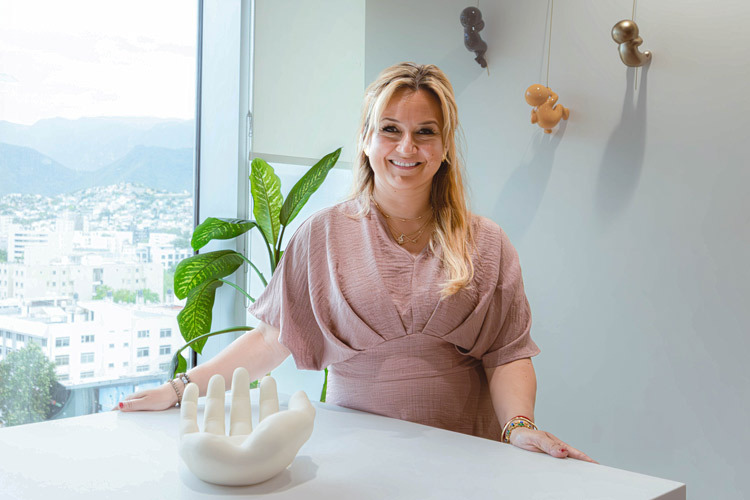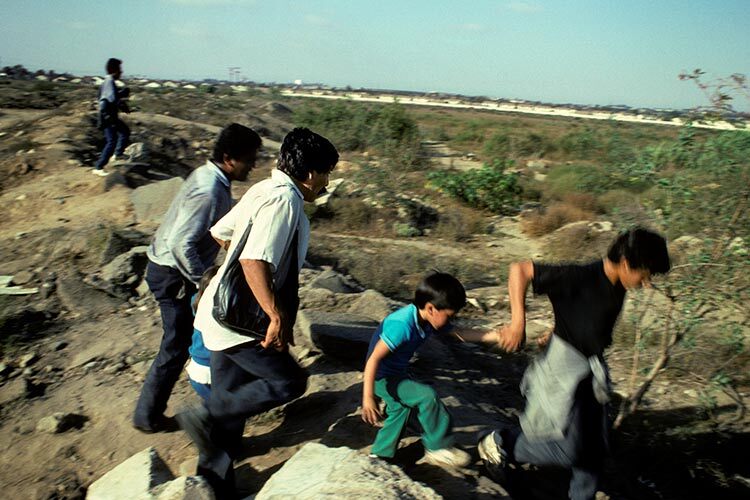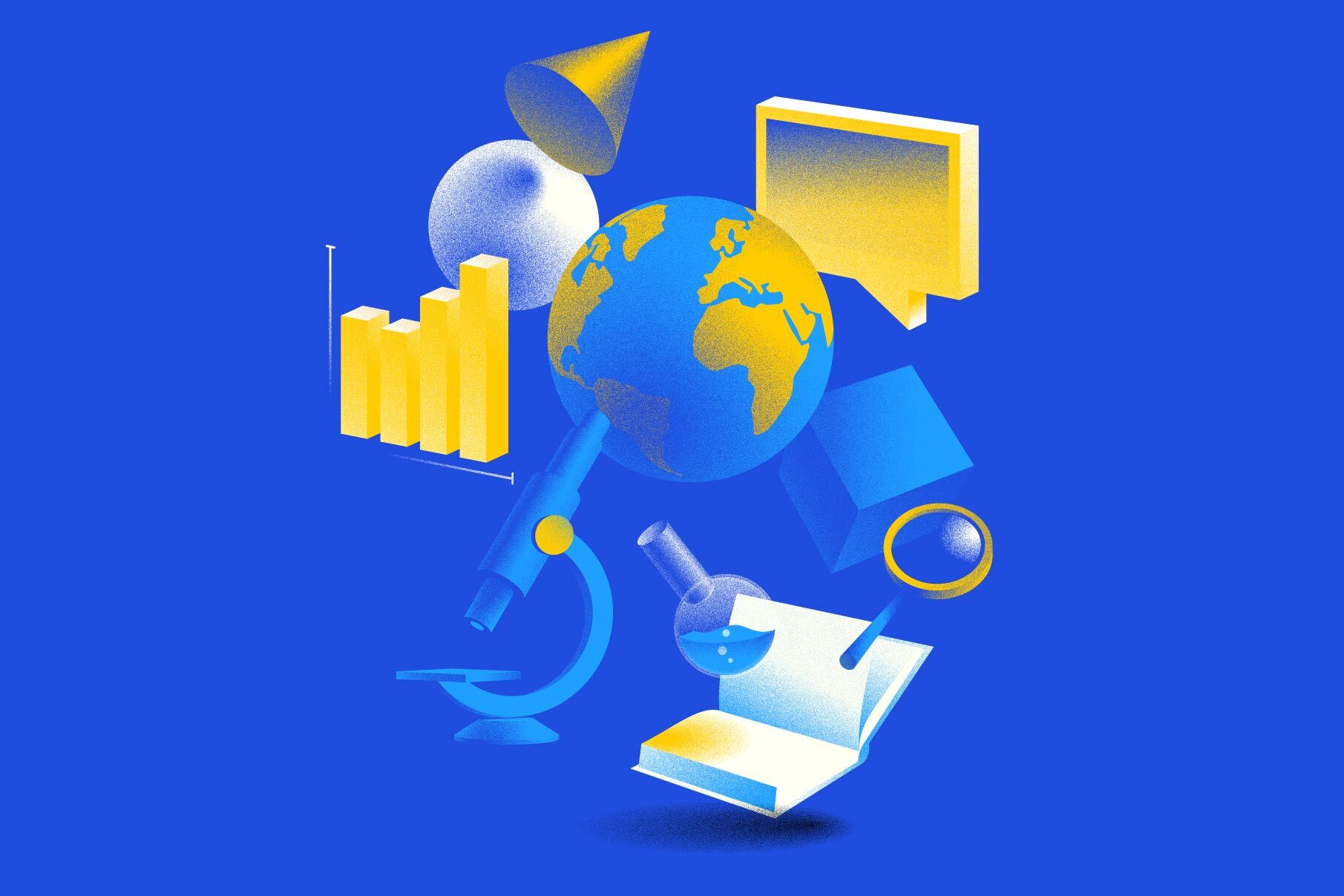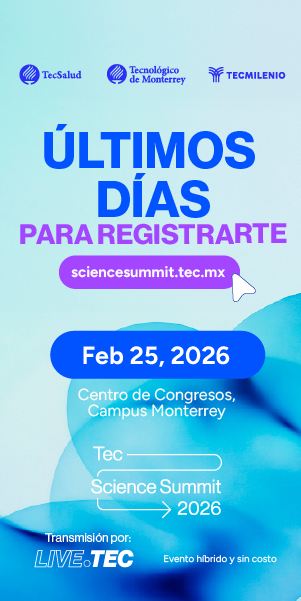You may not remember it clearly, but during the first six years of your life, you developed many of the skills and traits that today define who you are and the value you can bring to society. In that stage, known as early childhood, you built the foundations of your curiosity, your ability to think and learn, and the way you relate to the world around you.
Angélica Pongutá, Director of Research at the Early Childhood Center (CPI, for its initials in Spanish) of Tec de Monterrey and Fundación FEMSA, explains that during this period, the brain’s architecture is established, shaping a person’s cognitive, emotional, and social abilities for the rest of their life.
“In those first years of life, there is the greatest window of opportunity for human development—but also the highest moment of risk,” says the director, who has also served as a faculty member at Yale Child Study Center, where for more than a decade she carried out research projects in over 20 countries around the world.
Through these initiatives, she has developed and reviewed programs and policies to support the education and development of children and youth. She has also evaluated how they learn to help improve early childhood care systems. In addition, she is part of the Early Childhood Peace Consortium, a global network of experts and organizations that promotes actions to prevent violence and foster healthy development in young children.
She explains that ensuring proper child development requires understanding early childhood as a multidimensional concept connected to three main areas: health, education, and social protection.
More Need, Fewer Resources
What’s more, challenges in these three areas must be addressed in a coordinated and consistent way—because if even one of them fails, there’s a risk of limiting the potential and developmental opportunities of young children.
Investment and research in early childhood are critical, as they make it possible to identify risk and protective factors, design programs to boost development, and generate evidence to shape public policies that maximize the benefits of this life stage.
Early childhood is a meeting point between science, basic research, and social benefit, according to Pongutá. Despite its importance, early childhood remains one of the least funded areas of social investment—receiving in Mexico, for example, only about 0.55% of the Gross Domestic Product. This is true not only in Latin American countries, Pongutá explains, but across the globe.
Some gaps threaten children’s full development in the region, and these can even vary within the same country. In health, for instance, inequalities exist both in the quality of and access to medical care and nutrition services.
Early education, perhaps the greatest challenge, shows wide disparities in coverage and quality across different regions and socioeconomic contexts. In addition, there are significant challenges related to preventing child abuse and neglect, the lack of programs to promote positive parenting practices, and the need to provide support and guidance to families and caregivers.
Everyone Needs to Take Part
Pongutá says that closing these gaps requires joint efforts—bringing together academia, the public and private sectors, and international networks—through an integrated science-and-action approach. This means starting with research on risk and protective factors in all three areas, then evaluating interventions and programs, and ultimately presenting findings to decision-makers and policymakers to transform evidence into real solutions.
The Early Childhood Center has developed a research strategy grounded in interdisciplinary and multi-level work to tackle these major challenges. In other words, it seeks to bring together experts from diverse fields ranging from biology and behavior to urban design, public policy, and even the impacts of climate change.
“The idea is to connect scientific research with policy design, crossing disciplinary boundaries. It’s an ambitious agenda, because most early childhood centers around the world are thematic and specialize in a single field. In contrast, here, we have the potential to achieve much broader coverage,” Pongutá explains.
The Center has set three main research priorities for Mexico and Latin America:
- Identify risk and protective factors that affect early childhood, from the family environment to ecological and sociocultural contexts.
- Leverage large databases with artificial intelligence and machine learning to integrate existing information with data generated by the Center itself.
- Develop predictive models to anticipate needs and trends, to drive long-term, evidence-based public policies.
Among the projects already underway is the expansion of a study on adverse childhood experiences, now in collaboration with the Children’s Hospital Los Angeles, to include biomarker analysis in the Mexican population. The Center is also designing an assessment of early education quality—similar to one conducted in Colombia by Universidad de los Andes—that will allow for concrete recommendations to improve both classrooms and policy.
The CPI’s strategy includes forging international partnerships. With the Stanford Center on Early Childhood, for instance, it is adapting the RAPID Survey used in the United States to evaluate needs in highly vulnerable contexts and applying it in Mexican communities. The aim: to pinpoint priorities with precision and design programs and policies with greater local impact.
In November, the Center will take part in a United Nations panel during the General Assembly in New York, organized by the Early Childhood Peace Consortium. “We want this edition of our forum to be one of the technical processes that follow those conversations, and to connect what is discussed at the international level with concrete actions here, from Tec,” Pongutá says.
Looking ahead five years, the director envisions a longitudinal, interdisciplinary, multi-level study that follows a group of children over time, combining big data with information generated within the Center. “We want early childhood to be recognized as the greatest contributor to social transformation and peacebuilding; that’s where the foundations of societies lie.”
Interested in republishing this story? Reach out to our content editor at marianaleonm@tec.mx

















